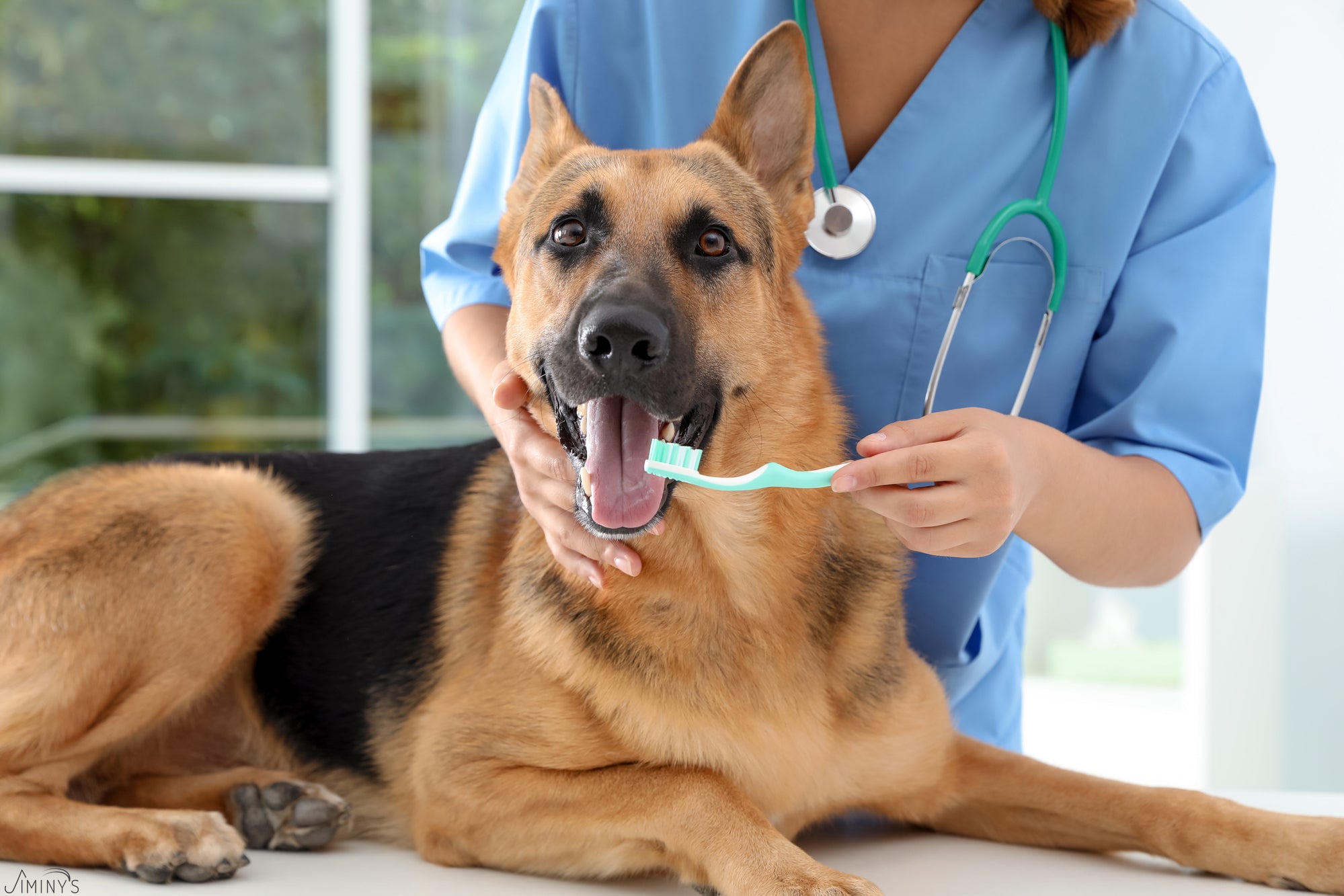You love snuggling your doggo at the end of a long day–but when their breath smells worse than week-old garbage, it can be tough to get up close and personal with your furry friend. Fear not, pet lovers: we've got some tips and tricks that can help you enjoy every moment you spend cuddled up with your pet.
1. Consider a food change.
While your pet isn't likely to indulge in bleu cheese or garlic, the food they eat can cause bad breath. If you're feeding your pet a diet high in grain, it's possible that the carbohydrates in the food are turning to sugar in their mouths, leading to bad breath and potential tooth decay. When you look at the ingredients of your dog's food, you should see plenty of items you recognize, and it's smart to choose a food that lists a protein as the first ingredient. Adding insect protein to your pet's diet offers a solution to ensure your pet has enough prebiotics to prevent certain conditions.
2. Talk to your vet.
Bad breath that won't go away despite your best efforts can be a sign of liver or kidney disease, so you'll want to check in with your vet if you're having a hard time getting your dog's breath to improve. Dental decay can also be a culprit behind bad breath. Your vet may recommend that your dog undergo a dental cleaning under anesthesia, allowing your vet to get to the root of the issue. Your dog may need a tooth removed, or your vet may recommend other procedures to improve their dental health. Even if your pet isn't currently having a bad breath issue, regular dental cleanings from your vet can help prevent oral health problems down the line.
3. Check out your pet's bathroom behavior.
We get it–sometimes, a dog's breath smells just as bad as poop! Most pet owners have been there. Sometimes, this means that dogs actually are eating poop right after they use the backyard facilities. You'll need to keep a close eye on your pet if you think this may be happening, as many dogs attempt to hide this behavior from their owners. If you notice your pet is eating the nasty, take some time to go outside with them when they use the bathroom so that you're able to stay on top of removing their strangely favorite treat. If you notice that the behavior goes on even after you reward them for a successful trip to the facilities without indulging, be sure to talk with your vet or an animal behaviorist about the best way to keep your pet's mouth clean.

4. Use a doggie toothbrush.
Just like humans, every dog's mouth needs a good cleaning regularly. While you might not need to clean your dog's teeth every day, getting in there with a doggie toothbrush (and toothpaste) a few times a week can help your pet's bad breath at bay. If your dog doesn't care for having their teeth brushed at first, don't worry–it's likely that they'll get used to it with time. Be sure to reward your pet with plenty of fun and snuggles, and even a dental-hygeine-friendly treat to help reassure them that everything is ok when they're getting their teeth cleaned.



